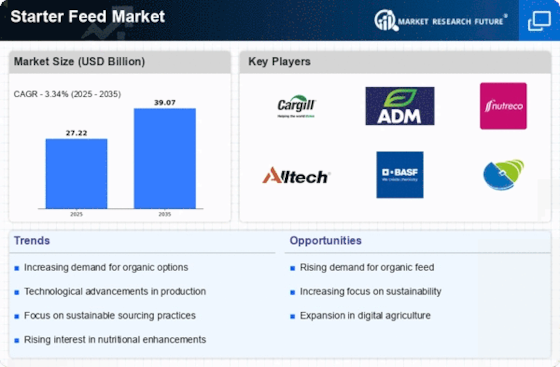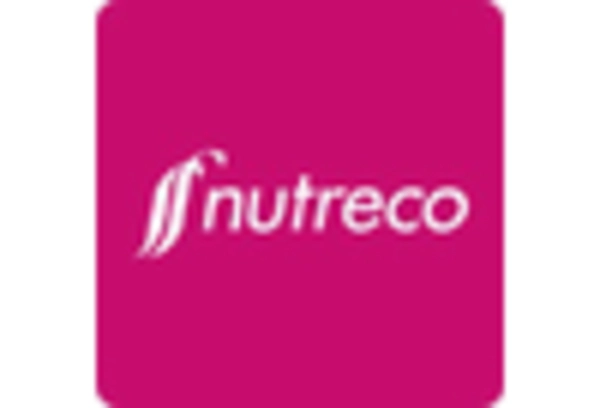Market Share
Starter Feed Market Share Analysis
Starter feed has been trending lately in the global livestock and poultry value chains, the result of the changing animal production needs. The formulation of starter feed, a special composition for young animals in early stages of their growth, is of great importance because it predetermines their health and productivity in the future. Another trend that is being seen in the market is the growing tendency of consumers to demand customized feeds that cater to their nutritional needs. Producers of cattle and poultry are paying attention to the role of early nutrition in the animals in terms of unlocking genetic potential of young animals, promoting growth and productivity and ensuring a well - developed start to development. This, in turn, reflects the transition to a more wholesome form of animal diet which emphasizes on poultry feed formulation that meets the individual nutritional demands of distinct animal breeds.
One evident trend in the industry of starter feed is the emergence and popularity of factors such as antibiotic-free and natural formulations. The aim of this both increasing the consumer cognition alongside with regulatory changes makes the starter feeds be more desirable without using antibiotics. Farmers are now trying out probiotics as well as other plant based ingredients so as to uphold the health of the young animals’ immune system and the gut. This trend coincides with industry's progression towards sustainable and ethical animal welfare practises in line with consumer concerns for responsibly produced and healthier meat and poultry products.
An important trend is that of customization which is created as a solution to different needs existing in the stock feed market. The growing trend of identifying the unique nutritional needs of different breeds of animals and production systems has resulted in the formulation of bespoke meals. This trend portrays the sectors' meticulousness in precision nutrition approach where one size doesn't fit all for maximum growth and performance in diverse cases.
The sustainable feed market has increasingly considered environmental aspects and has therefore affected both ingredient sources and production procedures. Farmers and buyers are now equating eco-friendly decisions with poultry and livestock production. This fosters sustainable ingredient sourcing which involves efficient production of proteins and grains. Stakeholders in the starter feed market too are moving towards eco-friendly manufacturing processes and packaging options and hence the overall focus is on minimizing the environmental impact.



















Leave a Comment